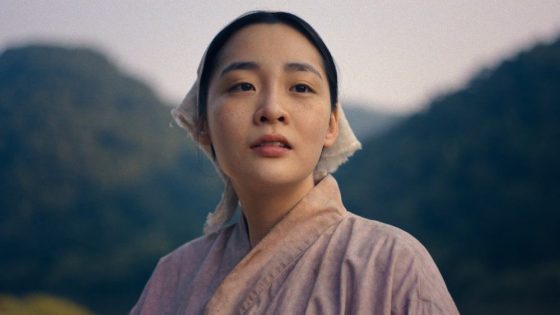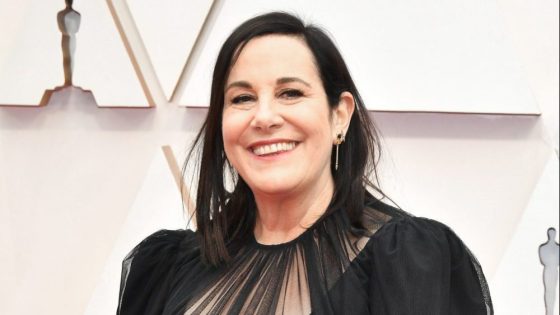In adapting Min Jin Lee’s bestselling novel, the first season of the Apple TV+ drama “Pachinko” made a series of editorial decisions that gave the show its own distinct identity. Most significantly, showrunner Soo Hugh and her writers split the story into two timelines, juxtaposing generations of the Baek family — so-called Zainichi Koreans who emigrated to Japan prior to World War II — separated by half a century. “Pachinko” also presented its dialogue almost entirely in Japanese and Korean, with color-coded subtitles both distinguishing the two languages and showing how the younger Baeks interspersed them as a form of assimilation.
But for the most part, “Pachinko” was faithful to its inspiration, even declining to compress Lee’s story into the trendier form of a limited series. (“Pachinko” is the rare source material to demand the multiseason treatment, in contrast to more strained extensions like “The Handmaid’s Tale.”) This approach paid off; Season 1 ranks among the finest original series Apple has produced, from its immersive period detail to the aching tragedy of the Baeks, buffeted by historical forces — colonization, conflict, racism — beyond their control. Its quality nonetheless went underrecognized. Where platform siblings like “The Morning Show” could make noise through sheer force of star power and ridiculous plot twists, the relatively understated “Pachinko” netted just a single Emmy nomination for Season 1, for its admittedly excellent, dance-driven opening credits.
With Season 2, “Pachinko” the show separates itself even further from “Pachinko” the book. This shift is both inevitable and a product of necessity, particularly in the more recent, 1989-set arc that’s fully caught up with Lee’s roadmap as of the Season 1 finale, which aired over two years ago in the spring of 2022. That’s not to underplay the accomplishments of Hugh and her team, who continue to do justice to Lee’s finely wrought characters and epic historical scope while making ever more of their own mark on the Baek family saga.
The defining event of the season, as for most of the world in the mid-20th century, is the globe-spanning war that saw the height of Japan’s jingoistic nationalism — an ideology especially cruel to people like Sunja (Minha Kim), a young Korean woman who finds herself stranded in Osaka with two young sons to care for and her husband, kindly preacher Isak (Steve Sang-Hyun Noh), imprisoned. To provide for the family, Isak’s brother Yoseb (Junwoo Han) has taken a job at a weapons factory in Nagasaki. The knowledge of what’s coming to that city adds an undertone of dread to the season’s first half, in addition to the hunger and scarcity that leave Sunja, a budding professional cook, without anything to sell.
This arc proves a showcase for Kim, who evolves Sunja from the naive teenager we first met in a fishing village to a world-weary woman inured to the harsh realities of life. Along with subtle yet effective work by the hair and makeup teams, Kim ages Sunja by years at a time — by the end of the season, we’ve been with her for nearly two decades — through simply modulating her performance. This season, Sunja’s sons Noa (Kang Hoon Kim) and Mozasu (Eunseong Kwon) are old enough to have personalities and plotlines of their own, expanding the series’ already sprawling ensemble. Noa is quiet, studious and deeply concerned with doing right by his family; Mozasu is loud, boisterous and openly defiant of the anti-Korean prejudice he encounters in school.
“Pachinko” also makes use of TV’s expanded canvas to build Koh Hansu (Lee Minho), a Korean fish broker turned macher in the Japanese underworld who’s also Noa’s biological father, into a co-lead. Lee, a major star in Korea, has the matinee idol looks to make Koh a compelling romantic presence, even as he goes further down a violent, ethically compromised path. (The period-accurate tailoring courtesy of costume designer Kyung-hwa Chae doesn’t hurt, either.) With his ill-gotten gains, Koh maintains a peripheral presence in Sunja’s life as a patron whose help she accepts only reluctantly, as when she and Yoseb’s wife Kyunghee (Jung Eun-Chae) take shelter from air raids at his farm in the countryside. Koh is not a sympathetic figure, but Lee makes use of the extra screen time to help the viewer understand the choices he’s made to survive, and his defensiveness in the face of others’ judgment.
The modern timeline, which centers on Sunja’s grandson Solomon (Jin Ha), proves more difficult to extend. The flashbacks can skip gracefully forward in time like a stone skipping on a lake; Solomon’s story line stays rooted in the immediate aftermath of his departure from fictional bank Shiffley’s in the wake of a botched land deal. (An older Korean woman’s refusal to sell her home brought up the American-educated Solomon’s latent angst about his birth country.) The ‘80s scenes therefore feel less dense, though they do offer Anna Sawai a worthy follow-up to “Shõgun” as Solomon’s ex-colleague Naomi, with whom he strikes up an affair.
Solomon’s quest to restore his professional dignity mostly serves to illustrate the cyclical nature of generational trauma. “No matter the times, life is never easy,” a grown Mozasu (Soji Arai) tells his mother. An aged Sunja (“Minari” Oscar winner Youn Yuh-Jung) doesn’t understand why Solomon still suffers when she’s sacrificed so much to make his life easier than her own. But Solomon finds himself in many of the same scenarios as his ancestors: pushed by societal bias into less respectable career paths and fighting the instinct to confirm his oppressors’ worst suspicions. The past never stays in the past, a theme additionally explored through the older Sunja’s new friendship with a stranger also haunted by his previous choices.
This season of “Pachinko” builds to many crescendoes, each more tearful than the last. Yet, from devastating deaths to star-crossed loves to harrowing cataclysms, the show never feels like it’s resorting to cheap sentiment. “Pachinko” is, tangibly, a labor of love, from the intimate family dynamics it depicts to the massive collective effort required to bring a dual period piece to life. Season 2 honors what came before it while striking out on its own, just as Sunja would want for her own successors.
The first episode of “Pachinko” Season 2 is now streaming on Apple TV+, with remaining episodes airing weekly on Fridays.
Source Agencies



